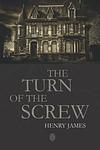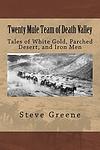As if You Don't Have Enough to Read, Fiction Edition
This is one of the 300 lists we use to generate our main The Greatest Books list.
-
The Moviegoer by Walker Percy
The protagonist, a young stockbroker in New Orleans, is alienated, detached, and finds more reality in movies and books than in his everyday life. He searches for meaning in life, often through his relationships with his aunt and his cousin, while also dealing with existential dread and the impending reality of turning 30. This exploration of alienation and search for identity in the modern world won the National Book Award for Fiction.
The 192nd Greatest Book of All Time -
The Needle's Eye by Margaret Drabble
"The Needle's Eye" explores the complexities of wealth, morality, and personal fulfillment through the story of Rose Vassiliou, a woman who has inherited a fortune but chooses to live a modest life in opposition to the materialistic values of her upbringing. Her life becomes intertwined with Simon Camish, a struggling barrister, as they navigate their conflicting ideals and the social expectations of London in the 1970s. The novel delves into themes of social class, family dynamics, and the search for meaning, as Rose and Simon confront their pasts and question what it truly means to lead a good life.
The 5505th Greatest Book of All Time -
The Passion by Jeanette Winterson
"The Passion" is a historical novel set during the Napoleonic Wars and told from the perspectives of two unique characters: a French soldier who serves in Napoleon’s army and a Venetian woman with webbed feet who works as a casino worker. The narrative explores themes of love, passion, identity, and fate as the two characters' lives intertwine in unexpected ways. The book is renowned for its magical realism and lyrical prose, offering a poetic exploration of human desire and the nature of love.
The 858th Greatest Book of All Time -
The Power and the Glory by Graham Greene
The novel is set during the Mexican Revolution, focusing on a whisky priest who is on the run from the authorities who have outlawed Catholicism. The priest, who is flawed and sinful, travels across the country to evade capture, minister to the faithful, and find a way to repent for his sins. Despite his moral failings, the priest's compassion and commitment to his faith make him a symbol of hope and resilience in the face of oppression. The book explores themes of faith, redemption, and the human struggle with sin.
The 350th Greatest Book of All Time -
The Rules Of Attraction by Bret Easton Ellis
Set in the 1980s at a small, affluent liberal arts college in New England, the novel captures the lives of a group of self-absorbed, hedonistic students as they navigate a world of casual sex, drug use, and apathy. Through a series of first-person narratives that often overlap and contradict each other, the story delves into the disaffected and aimless existence of these young adults, exploring themes of unrequited love, the search for identity, and the meaninglessness of the college social scene. The characters' intertwining relationships and the consequences of their actions paint a bleak picture of the disillusionment and moral ambiguity of the era.
The 3154th Greatest Book of All Time -
The Savage Detectives by Roberto Bolaño
"The Savage Detectives" is a novel that follows the lives of two Latin American poets, Arturo Belano and Ulises Lima, who are founders of a literary movement called "visceral realism." The book is divided into three parts and is narrated by multiple characters, providing different perspectives on the protagonists. The narrative spans over 20 years, following the poets' journey from Mexico City to Europe, Israel, and Africa, as they search for a mysterious poetess and navigate through the world of literature, sex, drugs, and the complexities of life.
The 449th Greatest Book of All Time -
The Shipping News by Annie Proulx
The novel follows the story of a depressed and overweight man who moves with his two daughters to his ancestral home in Newfoundland, Canada, after his unfaithful wife dies in a car accident. There, he begins to rebuild his life, working as a reporter for the local newspaper, The Shipping News, and learning about the harsh realities of the fishing industry. As he delves into his family's history, he begins to find a sense of belonging and a new love. The story explores themes of family, identity, and the power of place.
The 369th Greatest Book of All Time -
The Thin Man by Dashiell Hammett
This detective novel follows a retired private investigator, Nick Charles, who, while on a Christmas vacation in New York with his wife Nora, becomes embroiled in a murder investigation. The case involves a former client of his, Clyde Wynant, who has mysteriously disappeared after his secretary was found dead. As the investigation unfolds, Nick and Nora navigate a complex web of deceit, lies, and family drama, all while maintaining their witty banter and high-society lifestyle.
The 735th Greatest Book of All Time -
The Tin Drum by Günter Grass
The novel tells the story of Oskar Matzerath, a boy who decides on his third birthday that he will stop growing and remain a three-year-old forever. Oskar is gifted with a tin drum by his mother, which he uses to express his emotions and thoughts. Living in Danzig during the rise of Nazi Germany, Oskar's refusal to grow is a form of protest against the adult world. The book is a blend of magical realism and historical fiction, providing a unique perspective on the horrors of World War II and the post-war era in Germany.
The 93rd Greatest Book of All Time -
The Turn of the Screw by Henry James
A young governess is hired to care for two children at a remote English estate. However, she soon becomes convinced that the grounds are haunted by two former employees who have taken control of the children. As she fights to free the children from these apparitions, the line between reality and her own fears becomes increasingly blurred, leading to a chilling and ambiguous conclusion.
The 268th Greatest Book of All Time -
The Universal Baseball Association by Robert Coover
The book centers on Henry Waugh, an accountant who creates his own fantasy baseball league. He designs an elaborate system of dice rolls to determine the outcomes of games and even the life events of the players, and grows increasingly obsessed with his creation. As the line between his real life and the world of the Universal Baseball Association blurs, Waugh experiences a series of tragedies and triumphs that mirror the unpredictability and drama of a real-life baseball season.
The 2621st Greatest Book of All Time -
The Year of the Death of Ricardo Reis by José Saramago
The novel is a metaphysical narrative about a doctor named Ricardo Reis who returns to Lisbon, Portugal after learning about the death of his friend. He finds himself in a society on the brink of dictatorship, and as he navigates through his daily life, he encounters his deceased friend's ghost and a hotel maid with whom he begins a love affair. The book explores themes of identity, love, and the nature of reality, set against the backdrop of political turmoil.
The 1028th Greatest Book of All Time -
Ulysses by James Joyce
Set in Dublin, the novel follows a day in the life of Leopold Bloom, an advertising salesman, as he navigates the city. The narrative, heavily influenced by Homer's Odyssey, explores themes of identity, heroism, and the complexities of everyday life. It is renowned for its stream-of-consciousness style and complex structure, making it a challenging but rewarding read.
The 3rd Greatest Book of All Time -
Underworld by Don DeLillo
"Underworld" is a sweeping narrative that spans from the 1950s to the end of the 20th century, exploring the interconnectedness of events and the impact of the Cold War on American society. The story revolves around a diverse group of characters, including a waste management executive, a graffiti artist, a nun, and a baseball collector, among others. These characters' lives intertwine in unexpected ways, illustrating the complex web of relationships and influences that shape our world. The novel is renowned for its vivid portrayal of historical events and its profound examination of themes such as memory, technology, and waste.
The 415th Greatest Book of All Time -
V by Thomas Pynchon
"V" is a complex novel that intertwines two parallel narratives. One follows Benny Profane, a discharged U.S. Navy sailor involved in a group of bohemian artists and hooligans called the Whole Sick Crew, while the other narrative is a series of historical accounts researched by Herbert Stencil, who is on a quest to uncover the identity of an entity known only as V. The narrative oscillates between various global locations and time periods, including Egypt in 1898, Southwest Africa in 1922, and Malta in 1919, among others. The book explores themes of entropy, human connection, and the nature of identity.
The 569th Greatest Book of All Time -
We All Love Glenda So Much And Other Tales by Julio Cortazar
This collection of short stories delves into the surreal and the everyday with equal finesse, exploring the boundaries of reality and the quirks of human relationships. The narratives range from the titular tale, which examines the obsessive adoration of a famous actress, to more abstract and fantastical explorations of human experience. The author's masterful prose and innovative storytelling techniques invite readers to question the nature of truth and fiction, often blurring the lines between the two, while presenting a series of vignettes that are both thought-provoking and emotionally resonant.
The 6075th Greatest Book of All Time -
White Mule by William Carlos Williams
The novel follows the story of an immigrant family's struggle to adapt to life in America during the early 20th century. Focusing on the Stecher family, the narrative centers around their infant daughter, nicknamed White Mule, who symbolizes the family's resilience and determination. As they navigate the complexities of assimilation, cultural identity, and the pursuit of the American Dream, the family's experiences reflect the broader challenges faced by immigrants of that era. The book delves into themes of strength, perseverance, and the clash between old-world traditions and new-world opportunities.
The 5505th Greatest Book of All Time -
White Noise by Don DeLillo
The novel is a postmodern exploration of death and consumerism in the United States. It follows a year in the life of Jack Gladney, a professor who has made his name by pioneering the field of Hitler Studies at a small liberal arts college in Middle America. Jack and his fourth wife, Babette, are afraid of death and are obsessed with finding a cure for their fear. Their lives are disrupted by an airborne toxic event, which forces them to confront their mortality and the toxic effects of modern life.
The 302nd Greatest Book of All Time -
White Teeth by Zadie Smith
This novel follows the lives of two friends, a working-class Englishman and a Bangladeshi Muslim, living in London. The story explores the complex relationships between people of different races, cultures, and generations in modern Britain, with themes of identity, immigration, and the cultural and social changes that have shaped the country. The narrative is enriched by the characters' personal histories and the historical events that have shaped their lives.
The 227th Greatest Book of All Time -
Wolf Hall by Hilary Mantel
The novel is a historical fiction set in the 1500s, during the reign of King Henry VIII. The story is told from the perspective of Thomas Cromwell, a man of humble beginnings who rises to become the King's chief minister. The narrative explores the political and religious upheavals of the time, including King Henry's break with the Catholic Church and his controversial marriage to Anne Boleyn. The protagonist's cunning, ambition, and survival instincts are central to the plot as he navigates the treacherous waters of the Tudor court.
The 616th Greatest Book of All Time
New York Times, 120 Books
This is the fiction version of the non-fiction list. The description of the non-fiction list is -- Inspired by The Guardian's recent list of the 100 greatest nonfiction books, we here at the magazine decided to create our own list. Dispensing with all pretense to rigor — it's a list, silly! — we simply asked each member of the staff to pick their five favorites.
Note. I did delete one entry where someone just listed one author. These are ranked at the top of the list. I aggregated the duplicates into a rank.
This list has a weight of 48%. To learn more about what this means please visit the Rankings page.
Here is a list of what is decreasing the importance of this list:
- Voters: not critics, authors, or experts
- Voters: specific voter details are lacking
If you think this is incorrect please e-mail us at [email protected].



















